Boiler Pipe Grades: A Comprehensive Guide to Specifications, Applications, and Standards
Boiler pipes are vital components used in boilers, which generate steam for power plants, industrial systems, and heating applications. Selecting the right boiler pipe grade is crucial to ensure the efficiency, safety, and longevity of your system. This guide will cover the various types of boiler pipe grades, their materials, and the key standards that govern their use.
What Are Boiler Pipes?
Boiler pipes, also known as boiler tubes, are specifically designed for use in boilers, heat exchangers, and other high-pressure vessels. These pipes are responsible for transporting steam, hot water, and other fluids at elevated temperatures and pressures. Because of these harsh conditions, it is essential to choose materials that can withstand extreme environments.Boiler tubes refer to steel products with hollow sections and openings at both ends. They are long in comparison to their circumference. They can be divided into seamless steel tubes and welded steel tubes according to the production method. The specifications of steel tubes are expressed by the external dimensions (such as outer diameter or side length) and wall thickness. The size range is very wide, from small capillaries to large-diameter tubes with diameters of several meters. Steel tubes can be used for pipelines, thermal equipment, mechanical industry, petroleum geological exploration, containers, chemical industry and special purposes.
Understanding Boiler Pipe Grades
Boiler pipe grades refer to the material's composition and its mechanical properties, including strength, heat resistance, and durability. The grade of the pipe determines how well it performs in various applications. Depending on the temperature, pressure, and chemical exposure, different materials are selected to meet specific requirements.
Common Boiler Pipe Grades
Carbon steel is one of the most commonly used materials for boiler pipes. It strikes a good balance between cost and performance under high temperatures. The following grades are widely used:
SA-106 Grade B: Ideal for high-temperature service, this grade is used in pressure vessels and boilers. It’s particularly suitable for medium to high-temperature applications.
SA-192: This grade is designed for high-pressure applications, making it a preferred choice for steam boilers and heat exchangers.
2. Alloy Steel Boiler Pipes (SA-335 P1, P11, P22, P91)
Alloy steel offers superior resistance to high temperatures and pressures compared to carbon steel. These pipes are widely used in power plants, refineries, and chemical plants.
SA-335 P1: A basic alloy steel grade suitable for low-temperature, medium-pressure boilers.
SA-335 P11 and P22: Better for medium to high-pressure applications. These grades are known for their resistance to thermal fatigue.
SA-335 P91: This high-alloy steel grade is used in ultra-supercritical pressure boilers. It offers outstanding creep strength, making it suitable for extremely high-temperature and high-pressure environments.
3. Stainless Steel Boiler Pipes (SS 304, SS 316)
Stainless steel pipes are known for their enhanced corrosion resistance, making them ideal for systems exposed to harsh chemicals or demanding hygienic requirements.
SS 304: The most commonly used stainless steel, it offers great corrosion resistance, making it suitable for food processing and industrial applications.
SS 316: Offering even better corrosion resistance than SS 304, SS 316 is used in environments where pipes face aggressive chemicals or high temperatures.
4. Copper-Nickel Alloy Boiler Pipes (Cu-Ni)
Copper-nickel alloys are preferred in marine applications due to their excellent resistance to seawater corrosion. These pipes are resistant to stress corrosion cracking and crevice corrosion, ensuring durability in extreme conditions.
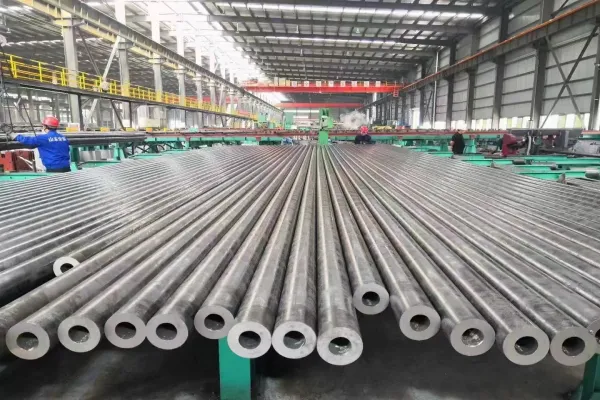
Key Standards for Boiler Pipes
To ensure the safety and efficiency of boiler pipes, various industry standards are followed. These standards cover everything from material composition to testing methods.
1. ASME (American Society of Mechanical Engineers)
ASME is a leading body for setting standards in the industry. Notable ASME standards include:
ASME SA-106: Covers carbon steel pipes for high-temperature services, perfect for boilers and pressure vessels.
ASME SA-335: Focuses on alloy steel pipes used in high-temperature applications.
2. ASTM (American Society for Testing and Materials)
ASTM standards are essential for regulating the production of boiler pipes. Some of the key ASTM standards are:
ASTM A192: Deals with seamless carbon steel pipes used in high-pressure boilers and heat exchangers.
ASTM A213: Covers seamless alloy-steel tubes used for high-temperature applications like superheaters and boilers.
3. ISO (International Organization for Standardization)
ISO standards are internationally recognized and provide comprehensive guidelines for the manufacture and testing of boiler pipes. One key standard is:
ISO 3183: Covers steel pipes for use in pressure systems, including boilers.
4. EN (European Standards)
For European manufacturers, EN standards are crucial. An example is:
EN 10216: Specifies seamless steel tubes for pressure purposes, including boilers.
Austenitic Stainless Steels
Austenitic stainless steels, including SA213-T304, SA213-T316, and SA213-T321, are commonly used for their exceptional corrosion resistance and high strength at elevated temperatures. These alloys are particularly beneficial in environments that are both high-temperature and corrosive, such as in steam generators and reheating systems.
SA213-T304: This grade contains 18% chromium and 8% nickel, offering excellent resistance to oxidation and corrosion. The carbon content of T304 can be controlled to ensure long-term strength, with a temperature limit of 1650°F in oxidizing environments.
SA213-T316: A variant of T304, T316 includes molybdenum, enhancing its resistance to pitting and crevice corrosion. This makes it particularly suitable for environments where aggressive chemicals may be present.
SA213-T321 and T347: These stabilized grades use titanium and columbium to improve high-temperature strength and resist carbide precipitation. They are ideal for applications requiring extended service at elevated temperatures.
Heat Treatment and Testing of Boiler Pipes
Boiler pipes undergo specific heat treatments to improve their mechanical properties. Common heat treatments include annealing, normalizing, and quenching, which depend on the material and application.
After heat treatment, pipes are tested to ensure they meet safety and performance standards. Common testing methods include:
Tensile Testing: Measures the strength and elongation of the pipe under stress.
Impact Testing: Tests the pipe's ability to withstand shock and impact.
Hydrostatic Testing: Involves applying pressure to the pipe to identify leaks or weaknesses.
Applications of Boiler Pipes
Boiler pipes are used in a wide range of industries, particularly where high-pressure steam systems are required. Some of the key applications include:
Power Plants: Boiler pipes are essential for steam generation, transporting steam to turbines for electricity production.
Chemical Processing: Many chemical plants rely on high-pressure systems, requiring durable, high-quality boiler pipes to handle aggressive chemicals and extreme temperatures.
Marine Applications: Copper-nickel alloy boiler pipes are commonly used in shipbuilding due to their corrosion resistance in seawater.
Heating Systems: In both commercial and residential heating systems, boiler pipes transport hot water or steam to radiators and heat exchangers.
Conclusion
Choosing the right boiler pipe grade is crucial for the safety, efficiency, and durability of a boiler system. Whether you need carbon steel for standard applications, alloy steel for high-pressure systems, or stainless steel for corrosion resistance, it’s important to understand the properties and specifications of each grade. By adhering to industry standards and undergoing rigorous testing, manufacturers can ensure that their pipes will meet the demanding needs of various industries, from power generation to chemical processing and beyond.








 English
English Español
Español بالعربية
بالعربية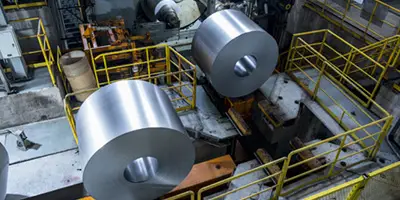

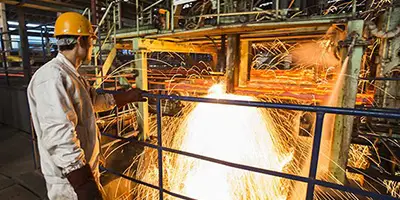
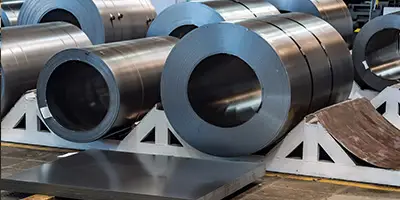

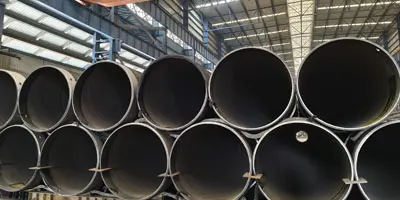
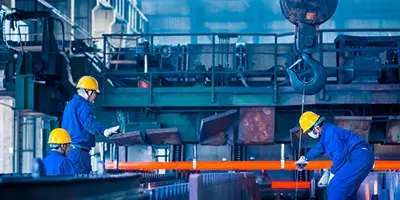
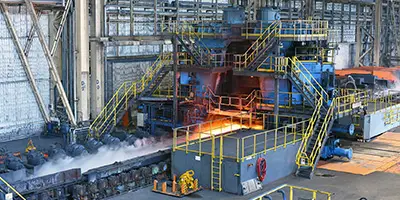
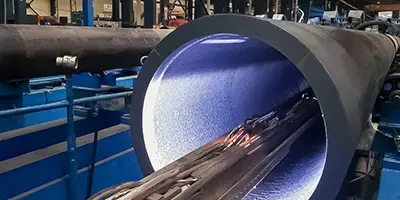
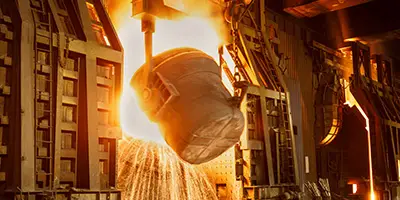
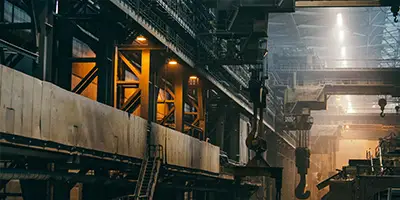

 Phone :
Phone :  Whatsapp :
Whatsapp :  Email :
Email : 


